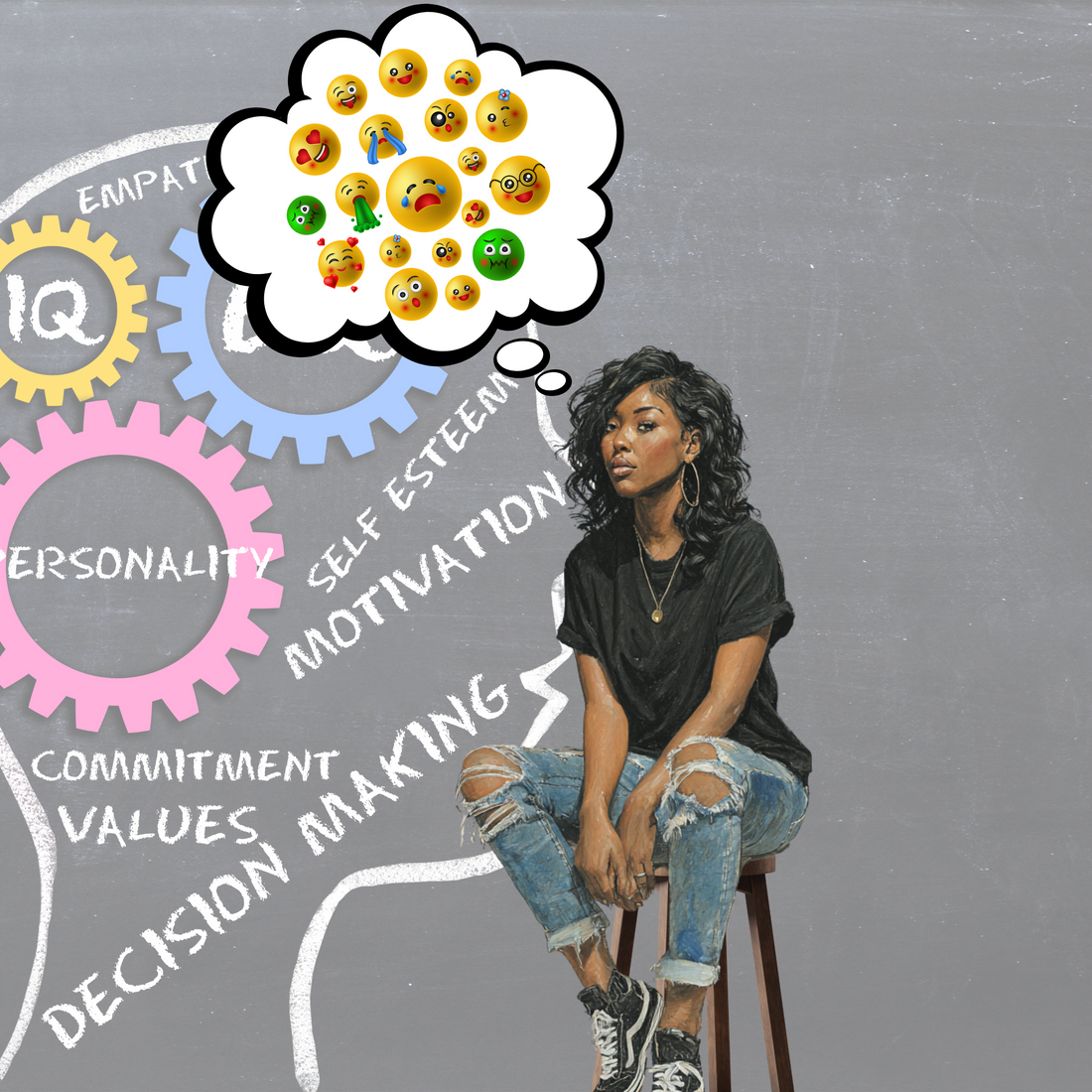
Growing My Emotional Intelligence: Lessons in Business, Work, and Relationships
Share
At 43 years old, I’ve worn many hats—program director, small business owner, wife, mother, daughter, sister, and friend. Each role requires something different of me, but the one thing they all have in common is this: emotional intelligence.
For a long time, I thought success was about hard work, credentials, strategy, and vision. And while those things matter, I’ve learned the hard way that emotional intelligence—the ability to recognize, understand, and manage my own emotions and those of others—can make or break everything I touch.
When Emotional Intelligence Is Missing
I’ll be the first to admit: there have been seasons in my life where my lack of emotional intelligence left damage in its wake.
- I avoided tough conversations, thinking silence meant peace, when in reality it meant resentment was brewing beneath the surface.
- I tip-toed around issues, convincing myself I was keeping the peace when I was actually building walls.
- I failed to acknowledge how my behavior—my tone, my frustration, my withdrawal (withdrawal was my bag)—impacted those around me.
The result? Strained relationships with co-workers, misunderstandings with my staff, tension at home, and even slowed productivity in my business. Emotional intelligence isn’t just a “nice-to-have.” Without it, you can unintentionally sabotage both your relationships and your success.
Why Emotional Intelligence Matters Everywhere
- In business: A lack of emotional intelligence shows up as poor communication with customers, impatient responses, or failure to really hear what people need. That can cost sales, trust, and loyalty.
- At work: Without emotional intelligence, productivity suffers. Teams lose motivation, leaders appear unapproachable, and conflict lingers unresolved.
- In relationships: Avoidance, dismissiveness, or unchecked emotions can create rifts that sometimes take years to heal.
When I started facing this truth, I made a commitment to grow. Emotional intelligence isn’t about perfection—it’s about progress.
5 Ways to Develop Emotional Intelligence
- Practice Self-Awareness
Pay attention to your emotions before they spill out. Ask yourself, What am I feeling? Why? How might this impact the people around me? Self-awareness is the foundation for everything else. - Lean Into Tough Conversations
Avoiding conflict only creates bigger problems later. Emotional intelligence means learning to address issues directly, respectfully, and with empathy. I’m learning to say what needs to be said—even when my voice shakes. - Develop Empathy
Empathy is more than “putting yourself in someone else’s shoes.” It’s actively listening without judgment and showing others that their perspective matters, even when you don’t agree. - Manage Your Reactions
Emotional intelligence isn’t about suppressing emotions, it’s about regulating them. Instead of snapping back or shutting down, I’m working on pausing—breathing before I respond. A pause can save a relationship. - Seek Feedback and Reflect
Ask trusted people in your circle, How do I show up? Where can I do better? And then really listen. Reflection creates growth, and growth creates stronger connections.
Moving Forward With Intentionality
I am still very much on this journey. Every day, I catch myself in old habits—wanting to avoid, wanting to tip-toe, wanting to shrug off accountability. But I also see the difference when I choose a higher road. I see better conversations with my family and friends. I see deeper trust with my staff. I see smoother communication with customers. And I see more peace within myself.
Emotional intelligence isn’t just about relationships with others—it’s about the relationship you have with yourself. And when that relationship is strong, every other area of your life benefits.
So here’s my encouragement: start today. Take one small step toward self-awareness, empathy, and growth. It will change your business, your career, your marriage, your friendships—and most importantly, it will change you.
